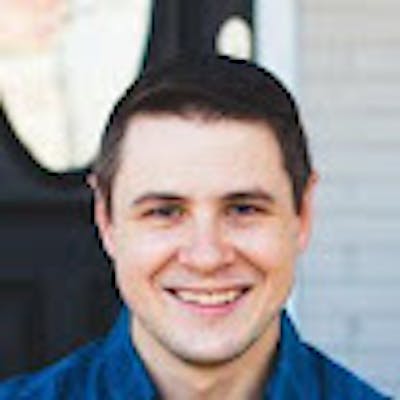A friend of mine called me up recently to ask me how to get started with programming. I've gotten these requests more and more as the demand for programmers rises. I'm going to compile a list of resources to help anyone get started with what I feel are the basis for what anyone who wants to program will need. This list is by no means comprehensive and while this will get you started you should not feel like you can go from knowing nothing to building the next Facebook simply by following this guide. It will, however, give you a solid foundation with which you can build and grow to the point where you could potentially build something like Facebook or Instagram on your own or working with a small team.
Which Language Should I Learn?
This depends entirely on what you are trying to do. Some people want to make their work life more efficient by writing small programs to automate their daily tasks while others may want to create websites and web applications. For the first I suggest Python. It is easy to pick up for beginners, it forces good code formatting, and it can be extended to do a large amount of things including creating large websites and applications (
Instagram runs on Django which is a web framework built on Python). If you really want to write web applications or create interactive websites I would recommend learning Ruby on Rails. I have written web applications in both languages and I am far more effective in Rails thanks to their mantra of "Convention over Configuration". I'll be writing a post about why I feel Rails is better than Django later. Pick your language based on your goals and read the online books I have linked below. They will help you set up your computer and teach you how to create very simple programs for you to have a good base of understanding for programming.
Great Starters Guides
Code Editor
You'll need a program to actually write the code. I personally suggest
Sublime Text 3. It is free, light-weight, and can edit any type of programming file. It has a lot of neat extensions and themes so you can customize it to fit your needs.
Learn Git
Once you have picked your language of choice, no matter what it is, you'll want to learn
Git. Git is a tool to help you version your project and files. Versioning is similar to saving but gives you specific moments to return to. Let's say you are working on a Word document. You start writing a lot, hit save, then you write a bunch more but decide you hate all that and want to return to where it was when you hit save initially. You could hit CTRL+Z a bunch but it would be nicer if you could point to a specific version of the file and say "I want to start from there again." With Git you can do that. You make commits, marking moments in time, with messages about the changes made. If you ever want to go back you can simply rollback to any previous commit undoing your current changes. This is useful when you have a working program and then start to do some complicated work only to find you have totally screwed up the project. Just roll back to when it was working and start again.
Github
While you can use versioning locally for your small projects you really start to see its true power when you make your software available for others to review and help; this is known as open-source software. Create an account on
Github and they will guide you in pushing your local git versioned projects into projects that anyone can see and help you with. Don't be afraid of others seeing what you might consider "bad code". The point of doing this is so others can help you learn and progress. When you have a larger project others can write features and submit bug fixes for your code as well. Once you have a firm grasp of whatever language you have chosen you can even write code for other open source projects to help them with their features and bugs.
Conclusion
Everyone should learn a little bit of programming just like everyone learns a little bit of math. Obviously we can go very deep into mathematics and we can do the same with programming but everyone should have a grasp of the basics and have a foundation even if you don't do it professionally. I hope this guide was useful and let me know if you have any questions or concerns in the comments below.


